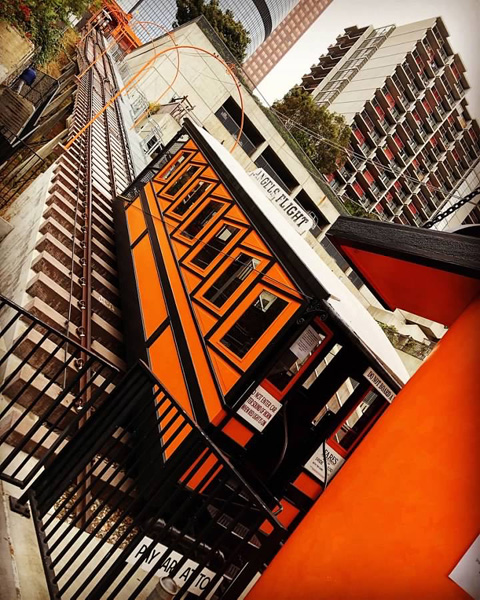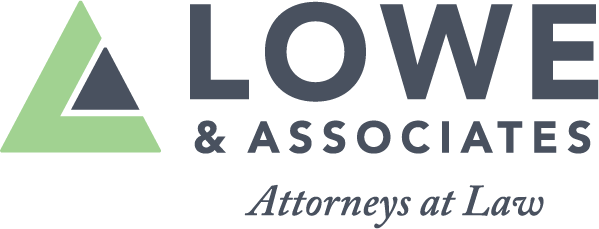Copyrights
Copyright laws are designed to protect a person’s creative expression. When another person or business copies your work, it destroys its value, causing you to lose the investment of hard work and time you put into creating it. An original work that is “fixed in a tangible medium” is your intellectual property, and you have rights to it and the profits derived from it.
To protect the rights in your intellectual property and your original work, experienced California copyright lawyers at Lowe & Associates will fight for your rights.
 Basics of Copyright Law
Basics of Copyright Law
Under United States law, copyright protection is afforded to original works in a tangible medium of expression. This covers both published and unpublished works, including but not limited to:
- books;
- poems;
- artwork;
- music;
- movies;
- photographs;
- dance choreography;
- software;
- web pages;
- digital works;
- screenplays and treatments; and
- compilations. While ideas are not protected, California state law provides for the protection of ideas in certain circumstances.
Copyright Protections in California
Under U.S. law, a copyright is automatic upon the creation of a work that is subject to copyright protection. This provides the creator of the work exclusive rights to:
- make copies of the original work;
- distribute, sell, or transfer an original work;
- perform or display the work publicly;
- make “derivative” works (translations, adaptations, interpretations of the original); and
- digitally transmit works.
Copyrighted works can be bought, sold, or given away to others.
What Is Not Protected
Not everything about an original work is protected. For example, a copyright does not protect the underlying ideas behind the work, nor:
- discoveries,
- data,
- methods,
- processes; and
- ideas.
However, as previously mentioned ideas are subject to protection under state law.
Use of the Copyright Symbol ©
The copyright symbol © can be used even if the work is not registered with the U.S. Copyright Office. If a person wishes to protect his or her original work, the placement of the copyright symbol is one way to put others on notice that you claim ownership of your original work.
Simply using this symbol gives you virtually no rights. A much better way to increase the protection of your work is to register your work with the United States Copyright Office.
Copyright Registration
Registration of your copyright is not required but is very highly recommended when publishing or commercially distributing original works. This is especially true if you intend to protect your work from being stolen and used by others.
There are certain significant advantages acquired by registration, including:
- It permits the owner to institute a federal court action to stop others from using the work; and
- A registered owner can seek statutory damages and attorney fees for infringements that occur after the date of registration ( assuming registration is accomplished within 3 months of infringement).
Registering Your Work
To actually register your original work, and to start the process of giving it the best protection possible, you can work with our experienced copyright attorneys to give you comprehensive advice and to file your registration with the U.S. Copyright Office.
Length of Copyright
The duration of a copyright is lengthy, but the specific period depends on the circumstances of the work’s creation.
- Pre-1978 works: One 28-year term plus an additional term of 67 years.
- 1978 and later: The life of the author plus 70 years.
- Works made for hire: 95 years after the first publication or 125 years after creation, whichever expires first.
Once the copyright expires, the work typically enters the “public domain,” meaning it can be freely used without restriction.
Violations of Your Copyright – Copyright Infringement
Infringement occurs when another person copies your work, which is defined as another having access to the work and the infringing work is “substantially similar.” When another person who has access to your work creates or otherwise exploits a work that is substantially similar or identical to yours, you have the right to file a lawsuit to protect those rights.
If your copyright is registered, as is recommended, you can immediately file a federal lawsuit to protect your legal rights to the work. Otherwise, under certain circumstances, you can file an idea theft claim in state court, as long as the work is used by someone who you submitted the work to, the case is filed within two years of the first publication, and other requirements are met.
In certain circumstances in order to stop others from using your work, your attorney can utilize cease and desist letters designed to warn others that their infringement of your copyright will lead to imminent litigation if they do not stop. Sometimes, this type of letter from an experienced attorney is all that is needed to stop further infringement but often the damage has already been done.
When the letter is not enough and/or negotiations fail, you can file a copyright infringement lawsuit to enforce your legal rights. At Lowe & Associates, we work hard to settle the case via mediation or arbitration proceedings to save you money and time. But we will not hesitate to file a federal lawsuit and even pursue trial to aggressively redress your rights if need be.
Remedies in Copyright Cases
In copyright infringement cases, there are several different forms of remedies you can seek. These include:
- an injunction against further use of the infringing copyright;
- a court order requiring the destruction or forfeit of anything containing the infringing copyright;
- damages for loss of profits, loss of future exploitation, and disgorgement of infringer’s profits;
- “actual damages” such as lost licensing fees;
- statutory damages anywhere between $750 and $30,000 per infringement, or $150,000 per infringement if it is deemed willful;
- an order for payment of the costs of the lawsuit and attorney fees.
Consult an Experienced California Copyright Attorney
Copyright protection and enforcement are not for the faint of heart or the inexperienced. It is a somewhat complex area of the law. However, it is one of the only ways to protect your creative work from illegal copying and to otherwise recover for the investment of time and money you put into creating and producing your work.
An experienced California copyright attorney at Lowe & Associates can protect and enforce your copyrights. Contact us today for a consultation.
